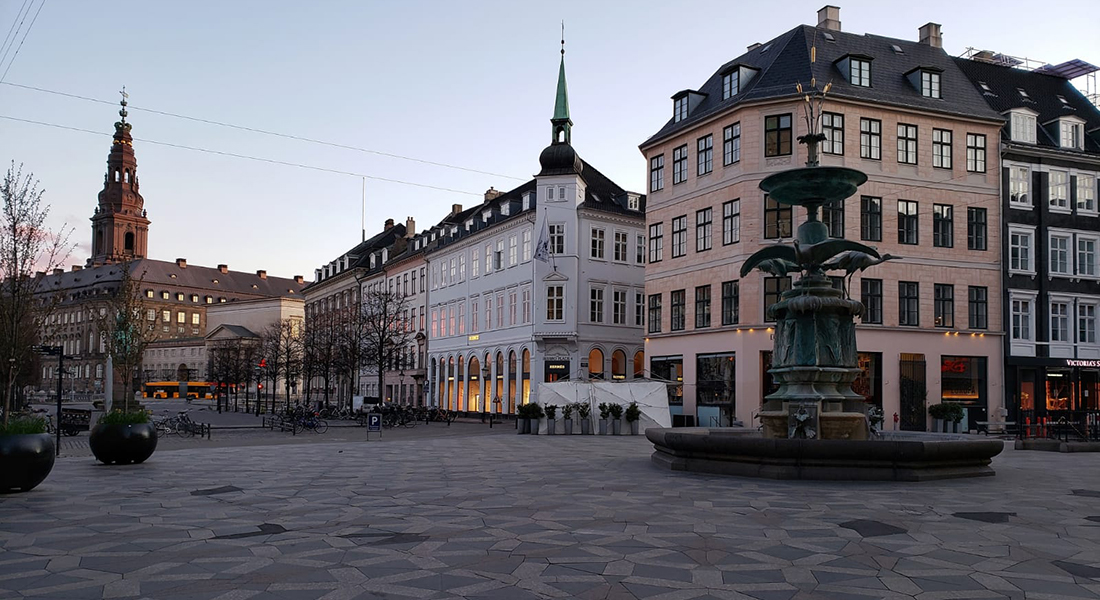Where have all the people gone? Reconstructing daily life during the Corona Crisis
How are your daily routines affected by social distancing measures? How do you keep in touch with friends and family? What government regulations are the most difficult to follow? And why?

On March 11th, the Danish government closed down schools, universities, and set in motion other distancing strategies designed to keep us physically apart. These measures suddenly changed the daily lives for millions of Danes and raise an important question: How have the distancing regulations impacted social relationships, family life, well-being, and mental health?
You can help us find out!
Participate in the survey here
(Please use Chrome, Firefox or Safari as browser)
All participants will be asked to fill out a diary-like survey where you share details of your activities from the previous day. The survey takes approximately 15-20 minutes to complete.
To fight the spread of SARS-CoV-2 and COVID-19, governments around the world are implementing drastic “social distancing” policies such as school and university closures, the closing of national borders, or even placing whole cities and regions under quarantine. The epidemiological underpinning of these measures is that they “flatten the curve”, reduce peak caseload numbers in hospitals, and thereby keep health systems from breaking down. However, research has long shown that social contact is intimately tied to mental and physical health.
We are conducting a weekly online survey combining the Day Reconstruction Method with open diary formats to study the impact of social distancing policies on everyday routines, mental health, family life, and interpersonal contact (including remote forms of contact using phones or digital technologies). Among the questions we seek to address are the following: Who follows recommendations (or legal requirements) to stay at home and reduce the number of social contacts? Which potentially risky routines do people have difficulties abstaining from? How do families (re-)organize their everyday routines to combine childcare and (home office) work, how do they adapt to unemployment and illness? For which types of couples and families does confinement and quarantine lead to conflict and crisis and which families are able to master these challenges or even use additional time together to improve relationship quality?
What are the consequences of ongoing social distance for individual resilience and mental health? As the pandemic continues, who is able to sustain these newly-established routines, and why do others return to former habits? The answers to these and related questions will be crucial for monitoring the potential unintended consequences and risks of distancing measures and for targeting political countermeasures.
May 1, 2020: The Atlantic
I Have Seen the Future—And It’s Not the Life We Knew
May 9, 2020: BBC News
Europe correspondent Jean Mackenzie twitter account
You can present the most important publications here. Include a link to full publication list if possible.
The study has been developed by a team of researchers from the Departments of Sociology and Psychology at the University of Copenhagen and WZB Berlin Social Science Center.
Researchers
| Name | Title | Phone | |
|---|---|---|---|
| Merlin Schaeffer | Professor, Head of Studies | +4535331692 | |
| Seamus Anthony Power | Associate Professor - Promotion Programme | +4535332576 | |
| Thomas Morton | Professor, Deputy Head of Department | +4535326356 |
Funded by:
The survey is funded by the Faculty of Social Sciences' emergency grants allocated for research on societal aspects of Covid-19.
Project: Where have all the people gone? Reconstructing daily life during the Corona Crisis
Period: 2020-
Contact
Merlin Schaeffer
Department of Sociology
Mail: mesc@soc.ku.dk
Phone: +45 35 33 16 92
Follow the study
The projektet has its own blog, which is updated with new results from the survey:
KU Corona Diary Blog
External members:
| Name | Title |
|---|---|
| Dr. Jan Paul Heisig | Berlin Social Science Centre |
